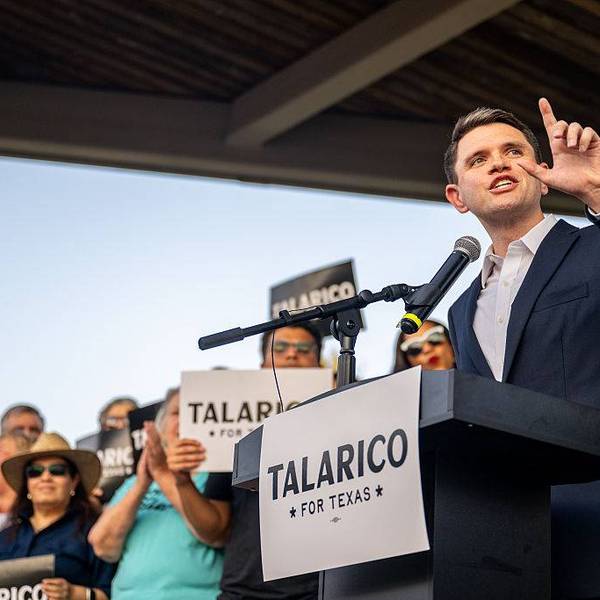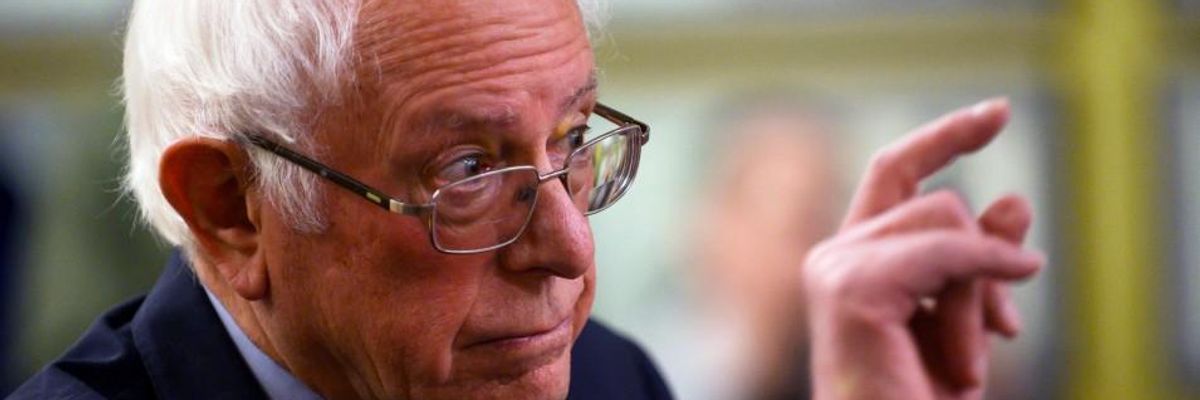Sen. Bernie Sanders, who has spent his several decades in politics fighting for working people and believes that "billionaires should not exist," responded to a new Oxfam International report on inequality by calling Tuesday for a global movement to pursue economic justice.
Oxfam, as Common Dreams reported Monday, found that "in 2019, the world's billionaires, only 2,153 people, had more wealth than 4.6 billion people." The report blamed this wealth disparity on the world's "flawed and sexist economic system" and urged governments across the globe to take "decisive action" to address it.
Sanders (I-Vt.), a top candidate in the crowded 2020 Democratic presidential primary race, responded to the report by declaring that "we live in a world where a tiny handful of billionaires have extraordinary control over the economic and political life of the global community."
"According to a new report from Oxfam, the top 1% own more than twice as much wealth than the rest of humanity--combined," Sanders said in a statement. "Meanwhile, nearly half of the global population is trying to survive on less than $5.50 a day and 820 million are going hungry."
"Further, as a result of extreme drought and a rise in sea levels exacerbated by climate change," the senator warned, "as many as 2.4 billion people throughout the world will be living in areas without enough clean drinking water just five years from today."
Sanders concluded that "now, more than ever, our job is to bring people around the world together to develop an international movement that takes on the greed of the billionaire class and leads us to a world of economic, social, political, and environmental justice."
As part of his presidential campaign, Sanders has vowed to tackle the "outrageous level of inequality that exists in America today," in part with a proposed "tax on extreme wealth" that he unveiled in September 2019.
The Sanders 2020 campaign estimates that his annual wealth tax targeting individuals with a net worth greater than $32 million would raise "$4.35 trillion over the next decade and cut the wealth of billionaires in half over 15 years."
As Common Dreams reported when Sanders first introduced the proposal, economists Gabriel Zucman and Emanuel Saez wrote in a letter analyzing his plan that "a progressive wealth tax is the most direct policy tool to curb the growing concentration of wealth in the United States."
Oxfam and global tax experts who responded to the new report--released just ahead of the World Economic Forum's annual meeting in Davos, Switzerland--emphasized the need for governments worldwide to tax the rich to enable greater investments in education, healthcare, infrastructure, pensions, and battling the climate crisis.
As the Oxfam report put it: "Governments must take bold and decisive steps by taxing wealth and high incomes and cracking down on loopholes and the inadequate global tax rules that allow rich corporations and individuals to escape their tax responsibilities."




